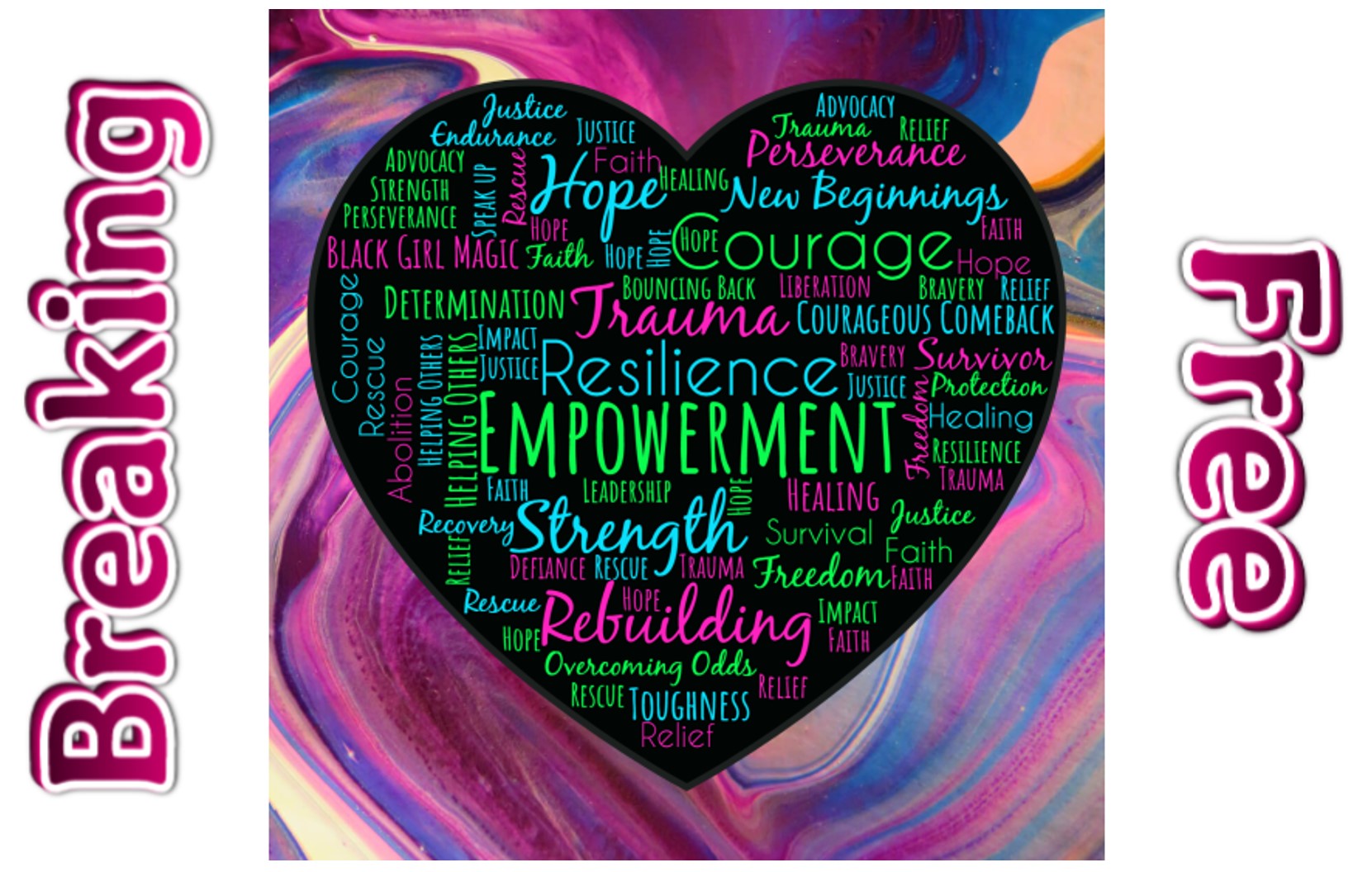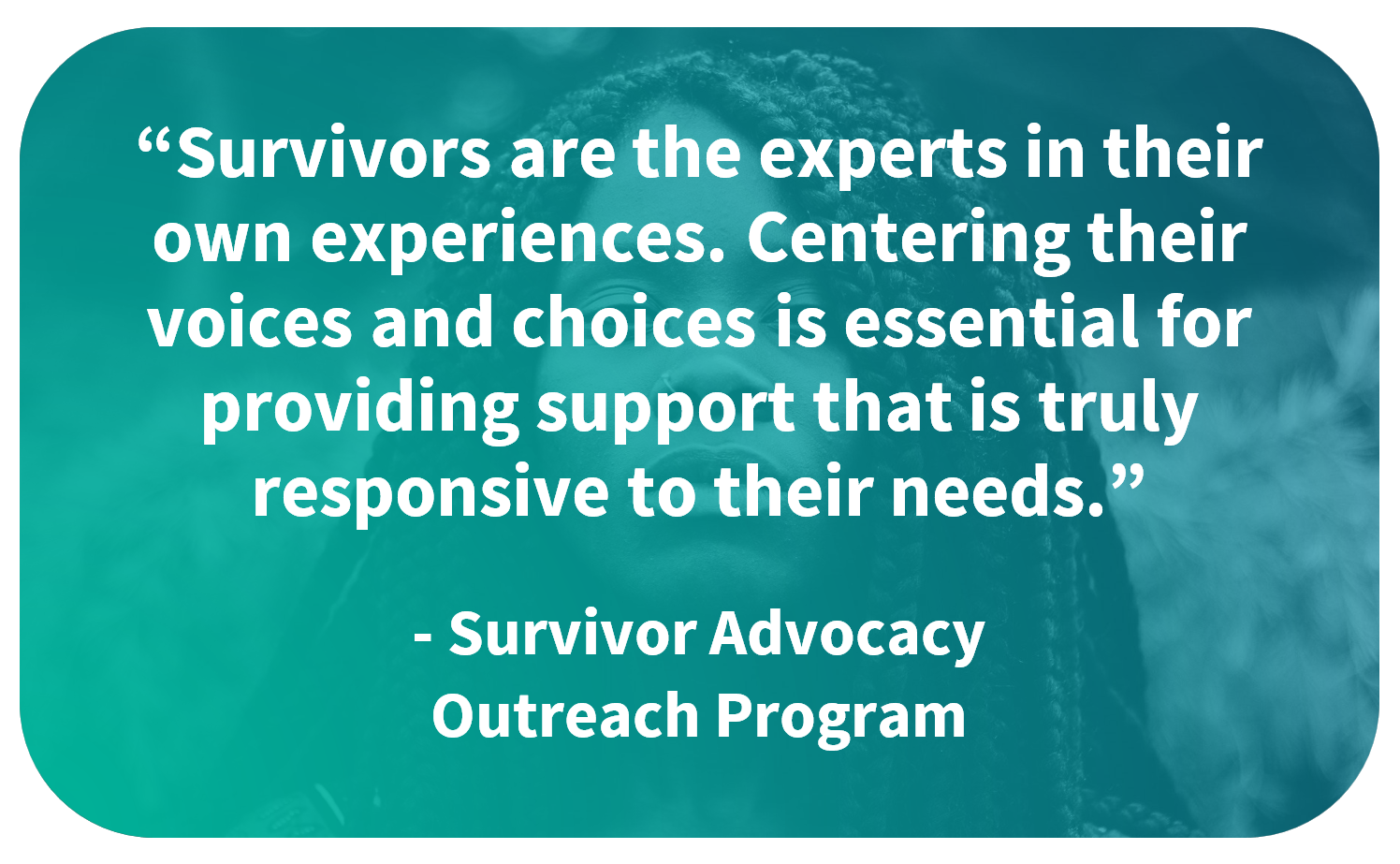
 | This learning module is part 3 of Hidden in Plain Sight: Understanding and Combating Familial Trafficking. |
Standing In Solidarity: Strategies for Combating Familial Trafficking
In order to combat familial trafficking, it is crucial that we listen to the voices of survivors who have experienced this crime firsthand. These individuals have invaluable insights and experiences that can help us understand the tactics and methods used by traffickers within families. By amplifying the voices of survivors, we can increase awareness, improve prevention efforts, and hold perpetrators accountable.
Youth Engagement and Leadership
- Empower Youth Voices - Amplify the perspectives and experiences of young people affected by or at risk of familial trafficking to inform prevention and intervention strategies.
- Develop Youth-Led Initiatives - Support the creation and implementation of youth-driven projects and programs that address the unique needs and challenges of familial trafficking.
- Foster Youth Leadership - Provide training, mentorship, and opportunities for youth to develop essential skills in advocacy, community mobilization, and collaborative problem-solving.
- Integrate Youth Perspectives - Ensure that youth representation and input are integrated into the design, implementation, and evaluation of anti-trafficking efforts at all levels.
- Build Youth Resilience - Implement trauma-informed, youth-centered approaches that empower young people to build their capacity, self-efficacy, and resilience.
Survivor-Centered Approach
- Safety - Ensure the physical, emotional, and psychological safety of survivors throughout the intervention process.
- Autonomy - Empower survivors to make informed decisions about their own recovery and future, respecting their right to self-determination.
- Trauma-Informed Care - Adopt a trauma-informed approach that recognizes the impact of trauma and prioritizes the survivor's well-being, healing, and long-term recovery.
- Holistic Support - Provide comprehensive, wraparound services that address the multifaceted needs of survivors, including housing, healthcare, legal assistance, and emotional support.
- Empowerment - Strengthen the resilience and self-agency of survivors, fostering their ability to navigate the recovery process and regain control over their lives.
- Confidentiality - Ensure strict confidentiality and privacy protections to safeguard the identity and personal information of survivors.
Effective Interventions and Prevention Strategies
These strategies require a collaborative and multi-systems approach. It's essential to prioritize the well-being and empowerment of survivors throughout all efforts.
- Education and Awareness
- Implement age-appropriate curriculum in schools about healthy relationships, boundaries, and exploitation.
- Conduct community workshops and campaigns to recognize signs of trafficking.
- Train professionals (teachers, doctors, social workers) to identify and report suspected cases.
- Providing Comprehensive Support Services
- Ensure access to mental health services, trauma counseling, and substance abuse treatment.
- Offer legal assistance for victims and their families.
- Provide safe housing options, including emergency shelters and long-term placements.
- Strengthening Child Protection Systems
- Enhance screening and reporting protocols for suspected trafficking.
- Increase staffing and resources for child protective services.
- Improve collaboration between law enforcement, social services, and the judicial system.
- Empowering Children
- Teach children about their rights and resources for help.
- Encourage open communication about unsafe situations or exploitation.
- Support leadership and advocacy opportunities for survivor youth.
- Strengthening Families
- Offer parenting classes and support for at-risk families.
- Provide resources for addressing underlying issues (poverty, substance abuse, domestic violence).
- Strengthen extended family and community support networks.
- Collaboration and Coordination
- Establish multidisciplinary teams for case management and service coordination.
- Improve information sharing between agencies (with appropriate confidentiality).
- Develop formal protocols for referral and collaboration.
- Early Identification and Intervention
- Train professionals to recognize signs of trafficking and exploitation.
- Conduct regular assessments and interviews with at-risk youth.
- Implement immediate response and safety planning when suspicions arise.
- Strong Legal Framework
- Enact and enforce strict laws against familial trafficking.
- Hold perpetrators accountable through criminal prosecution.
- Provide legal protections and support for victims and witnesses.
- Building Resilience
- Implement evidence-based programs promoting resilience and coping skills.
- Support positive relationships with mentors and supportive adults.
- Encourage engagement in positive activities (education, hobbies, peer groups).
- Financial Support
- Provide direct financial assistance for victims and their families.
- Help access public benefits and services.
- Support education and employment opportunities for long-term stability.
- Monitoring and Evaluation
- Track data on prevalence, risk factors, and outcomes.
- Regularly assess and improve prevention and intervention programs.
- Conduct research to inform evidence-based practices.
Barriers & Strategies for Supporting Victims and Survivors
- Lack of Financial Resources
- Provide direct financial assistance, such as emergency funding and long-term support.
- Help access public benefits, scholarships, and financial aid.
- Offer education and job training programs to promote self-sufficiency.
- Assist with budgeting, saving, and financial planning.
- Emotional/Psychological Trauma
- Ensure access to trauma-informed mental health services, including counseling and therapy.
- Provide support groups for survivors to share experiences and connect with peers.
- Teach coping skills and stress management techniques.
- Encourage engagement in positive activities for emotional well-being.
- Fear of Retaliation from Traffickers
- Develop safety plans with survivors, including emergency protocols.
- Provide access to legal services, such as obtaining restraining orders.
- Offer secure housing options, such as safe houses or relocation assistance.
- Ensure confidentiality and privacy in service provision.
- Lack of Awareness of Support Services
- Conduct outreach and education in communities about available services.
- Partner with other organizations to reach survivors.
- Provide clear information about services, eligibility, and access.
- Ensure services are culturally appropriate and accessible.
- Distrust of Law Enforcement
- Build relationships with survivor leaders and advocacy groups.
- Provide training for law enforcement on trauma-informed practices.
- Offer legal advocacy and accompaniment to legal proceedings.
- Ensure survivors' rights and protections are upheld in legal processes.

Dasha Says,
 “As a survivor of familial trafficking, I have finally found the strength to break free from the chains that once bound me. I have overcome the fear and manipulation that kept me silent for so long, and now I stand tall and proud as a resilient survivor. I have reclaimed my voice and my agency, and I refuse to let anyone control me ever again.
“As a survivor of familial trafficking, I have finally found the strength to break free from the chains that once bound me. I have overcome the fear and manipulation that kept me silent for so long, and now I stand tall and proud as a resilient survivor. I have reclaimed my voice and my agency, and I refuse to let anyone control me ever again.
I am no longer defined by the trauma and abuse that I endured at the hands of my own family. I am a survivor, a warrior, and a beacon of hope for others who may be trapped in similar situations. I have found the courage to speak out against the injustice and exploitation that so often goes unnoticed within our own homes.
To my fellow survivors, I say: never give up hope, never stop fighting for your freedom, and never let anyone else dictate your worth. You are strong, you are powerful, and you deserve to live a life free from fear and oppression. Remember, you are not alone, and together, we can break the cycle of trafficking and create a safer, more compassionate world for all.”
Module Navigation
- What is Familial Trafficking?
- Signs and Indicators
- Standing in Solidarity (Current Module)
